- Home
- Charles de Lint
Ivory and the Horn Page 3
Ivory and the Horn Read online
Page 3
“Not exactly.”
Angel’s looking a little puzzled, but curious, too.
“Your grades are good,” she says.
“It’s not got anything to do with grades,” I tell her. Well, it does, but only because the high school diploma’s part and parcel of the whole problem.
“Then what does it have to do with?” Angel wants to know.
It’s a reasonable request—more so because I’m the one who’s come to her, taking up her time. I know what I want to say, but I don’t know how to phrase it.
My new life’s like a dress I might have wished after in a store window, saved for, finally bought, only to find out that while it’s the right size, it still doesn’t quite fit properly. It’s the wrong color. The sleeves are too long, or maybe too short. The skirt’s too tight.
It’s not something Angel would understand. Intellectually, maybe, but not how I feel about it. Angel’s one of those people that sees everyone having a purpose in life, you’ve just got to figure out what it is. I don’t even know where to begin figuring out that kind of stuff.
“Nothing really,” I say after a few moments.
I get up suddenly, startling Rexy who jumps to the floor and then gives me this put-upon expression of his—he should take out a patent on it.
“I’ve got to go,” I tell Angel.
“Maisie,” she starts, rising herself, but I’m already heading for the door.
I pretend I don’t hear her. I pretend she’s not following me to the street and calling after me as I head down the block at a quick walk that you might as well call running.
I’m not in good shape, I realize. Angel’s the only person I know that I could have talked with about something like this, but I couldn’t do it. I couldn’t even start.
All I felt like doing was crying, and that really would have freaked her, because I never cry.
Not where people can see.
5
“So what are you really doing here?” I ask.
We’re sitting on a bench in the subway station at Williamson and Stanton, Shirley and I, with little Rexy sleeping on the toes of my running shoes. We’re at the far end of the platform. It’s maybe ten o’clock and there’s hardly anybody else down here with us. I see a couple of yuppies, probably coming back from an early show. A black guy in a three-piece checking out papers in his briefcase. Two kids slouched against a wall, watching a companion do tricks with her skateboard that bring her perilously close to the edge of the platform. My heart’s in my throat watching her, but her friends just look bored.
I wonder what they see when they look down this way. A baglady and me, with my dog dozing on my feet, or just me and Rexy on our own?
Shirley’s gaze is on the subway system grid that’s on the opposite side of the tracks, but I doubt she’s really seeing it. She always needed glasses but never got herself a pair, even when she could afford them.
“When I first got to the city,” she says, “I always thought that one day I’d go back home and show everybody what an important person I had become. I wanted to prove that just because everyone from my parents to my teachers treated me like I was no good, didn’t mean I really was no good.
“But I never went back.”
Ghosts always want to set something right, I remember from countless books and stories. Revenge, mistakes, that kind of thing. Sometimes just to say goodbye. They’re here because of unfinished business.
This is the first time I ever realized that Shirley’d had any.
I mean, I wasn’t stupid, even when I was twelve and she first took me in under her wing. Even then I knew that normal people didn’t live on the streets wearing their entire wardrobe on their backs. But I never really thought about why she was there. She always seemed like a part of the street, so full of smarts and a special kind of wisdom, that it simply never occurred to me that she’d been running away from something, too. That she’d had dreams and aspirations once, but all they came to was a homeless wandering to which the only end was a mishap like falling down the stairs in some run-down squat and breaking your neck.
That’s what your life’ll be like, I tell myself, if you don’t follow through on what Angel’s trying to do for you.
Maybe. But I’d respected Shirley, for all her quirks, for all that I knew she wasn’t what anybody else would call a winner. I’d just always thought that whatever she lacked, she had inner peace to make up for it.
I slouch lower on the bench, legs crossed at the ankles, the back of my head leaning against the top of the bench. I’m wearing my fedora and the movement pushes it forward so that the brim hangs low over my eyes.
“Is that why you’re back?” I ask Shirley. “Because you still had things left to do here?”
She shrugs, an eloquent Shirley-like gesture, for all the layers of clothes she’s wearing.
“I don’t really feel I ever went anywhere or came back,” she says.
“But you died,” I say.
“I guess so.”
I try a different tack. “So what’s it like?”
She smiles. “I don’t really know. When I’m here, I don’t feel any different from before I died. When I’m not here, I’m… I don’t know where I am. A kind of limbo, I suppose. A place where nothing moves, nothing changes, months are minutes.”
I don’t say anything.
“I guess it’s like the bus I never took back home,” she adds after a moment. “I missed out on wherever it was I was supposed to go, and I don’t know how to go on, where to catch the next bus, or if they’re even running anymore. For me at least. They don’t leave a schedule lying around for people like me who arrive too late.
“Story of my life, I guess.”
I start to feel so bad for her that I almost wish she’d go back to throwing cryptic little riddles at me the way she’d done the first couple of times we’d met.
“Is there anything I can do?” I say, but the subway roars into the station at the same time as I speak, swallowing my words with its thunder.
I’m about to repeat what I said but when I turn to look at Shirley, she’s not there anymore. I only just make it through the doors of the car, Rexy under my arm, before they hiss closed behind me and the train goes roaring off again into the darkness.
The story of her life, I think. I wonder, what’s the story of mine?
6
I should tell you about Tommy.
He’s a big guy, maybe six feet tall and running close to a hundred and eighty pounds. And he’s strong. He’s got brown hair, a dirtier shade than mine, though I try to keep it looking clean, and guileless eyes. He couldn’t keep a secret if he knew one.
The thing is, he’s simple. A ten-year-old in an adult’s body. I’m not sure how old he is, but the last time I took him in for a checkup at the clinic, the doctor told me he was in his early thirties, which makes him older than me.
When I say simple, I don’t mean stupid, though I’ll admit Tommy’s not all that bright by the way society reckons intelligence. I like to think of him as more basic than the rest of us. He’s open with his feelings, likes to smile, likes to laugh. He’s the happiest person I know, which is half the reason I love him the way I do. He may be mentally impaired, but sometimes I figure the world would be a better place if we all maintained some of that sweet innocence that makes him so endearing.
I inherited Tommy the same way I did the rest of my family: I found him on the streets, abandoned. I worried some at first about keeping him with me, but when I started asking around about institutions, I realized he’d have something with me and the dogs that he couldn’t get anywhere else: a family. All a guy like Tommy needs is someone willing to put the time into loving him. You don’t get that in places like the Zeb, which is where he lived until they discharged him so that someone with more pressing problems, read money, could have his bed.
One of the things I hate about the way my life’s going now is that I hardly ever see him anymore. Our landlady knows him better t
han I do these days and that’s depressing.
The day after I talk to Shirley in the subway, I get off early from work. There’s a million things I should be doing—like the week’s grocery shopping and research for a history essay at the library—but I decide the hell with it. It’s a beautiful day, so I’m going to pack up a picnic lunch and take the family to the park.
I find Tommy and Aunt Hilary in the backyard. She’s working on her garden, which for a postage-sized tenement lot is a work of art, a miniature farm and English garden all rolled into about a twenty by twenty foot yard of sunflowers, rosebushes, corn, peas, every kind of squash, tomatoes and flowerbeds aflame with color and scent. Tom’s playing with the paper people that I cut out of magazines and then stick onto cardboard backings for him. The dogs are sprawled all over the place, except for Rexy, who’s dogging Aunt Hilary’s heels. You don’t understand how apt an expression like that is until you see Rexy do his I-always-have-to-be-two-inches-away-from-you thing.
Tommy looks up when he hears the dogs starting to yap,’ and suddenly I’m inundated with my family, everybody trying to get a piece of hello from me at the same time. But the best thing is seeing that kind of sad expression that Tommy’s wearing too much these days broaden into the sweetest, happiest smile you can imagine. I don’t figure I’ve ever done anything to deserve all this unadulterated love, but I accept it—on credit, I guess. It makes me try harder to be good to them, to be worthy of that love.
I’ve got the trick down pat by now, ruffling the fur of six dogs and giving Tommy a hug without ever letting anybody feel left out. Aunt Hilary’s straightening up from her garden, hands at the small of her back as she stretches the kinks from her muscles. She’s smiling, too.
“We had a visitor,” she tells me when the pandemonium settles down into simple chaos.
Tommy’s leading me over to the big wooden tray on a patch of grass to show me what his paper people have been up to while I was gone this morning, and the dogs sort off mooch along beside us in an undulating wave.
“Anybody I know?” I ask Aunt Hilary.
“I suppose you must,” my landlady says, “but she didn’t leave a name. She just said she wanted to drop by to see how your family was making out—especially your son.”
I blink with surprise at that. “You mean Tommy?”
“Who else?”
Well, I guess he is like my kid, I think.
“What did she look like?” I ask, half-anticipating the answer.
“A bit like a homeless person, if you want to know the truth,” Aunt Hilary says. “She must have been wearing three or four dresses under her overcoat.”
“Was she black?”
“Yes, how did you—”
“Hair in dreadlocks with lots of buttons attached to them?”
Aunt Hilary nods. “And she kept fiddling with something in her pockets that made a rattle-y sort of sound.”
“That’s Shirley,” I say.
“So you do know her.”
“She’s an old friend,”
Aunt Hilary starts to say something else, but I lose the thread of her conversation because all I’m thinking is, I’m not crazy. Other people can see her. I was being pretty cool whenever Shirley showed up, but I have to admit to worrying that her presence was just the first stage of a nervous breakdown.
Suddenly I realize that I’m missing everything my landlady’s telling me about Shirley’s visit.
“I’m sorry,” I tell her. “What did you say?”
Aunt Hilary smiles. She’s used to my spacing out from time to time.
“Your friend didn’t stay long,” she says. “She just told Tommy what a handsome young man he was and patted each of the dogs with utter concentration, as though she wanted to remember them, and then she left. I asked her to stay for some lunch, or at least a cup of tea, because she looked so—well, hungry, I suppose. But she just shook her head and said, That’s very kind of you, but I don’t indulge anymore.’”
Aunt Hilary frowns. “At least I think that’s what she said. It doesn’t really make a lot of sense, when you consider it.”
“That’s just Shirley,” I tell her.
I can tell Aunt Hilary wants to talk some more about it, but I turn the conversation to my plan for an outing to the park, inviting her along. She hasn’t got the time, she says— is probably looking forward to a few hours by herself, is what I hear, and I don’t blame her—but she gets right into helping me get a knapsack of goodies organized.
We have a great day. Nothing’s changed. I’ve still got to deal with my malaise, I’ve still got the ghost of a dead friend hanging around, but for a few hours I manage to put it all aside and it’s like old times again.
I haven’t seen Tommy this happy since I can’t remember when, and that makes me feel both glad and depressed.
There’s got to be a better way to live.
7
I decide it’s time to get some expert advice, so the next day I call in sick at work and head off down to Fitzhenry Park instead.
Everybody who spends most of their time on the streets isn’t necessarily a bum. Newford’s got more than its share of genuinely homeless people—the ones who don’t have any choice: winos, losers, the hopeless and the helpless, runaways, and far too many ordinary people who’ve lost their jobs, their homes, their future through no fault of their own. But it’s also got a whole subculture, if you will, of street musicians, performance artists, sidewalk vendors and the like.
Some are like me: They started out as runaways and then evolved into something like when I was making cash from trash. Others have a room in a boarding house or some old hotel and work the streets because that’s where their inclination lies. There’s not a whole lot of ways to make a living playing fiddle tunes or telling fortunes in other outlets, and the overhead is very affordable.
Fitzhenry Park is where a lot of that kind of action lies. It’s close to the Combat Zone, so you get a fair amount of hookers and even less-reputable types drifting down when they’re, let’s say, off-shift. But it’s also close to the Barrio, so the seedy element is balanced out with mothers walking in pairs and pushing strollers, old women gossiping in tight clusters, old men playing dominoes and checkers on the benches. Plus you get the lunch crowds from the downtown core which faces the west side of the park.
The other hot spot is down by the Pier, on the lakefront, but that’s geared more to the tourists, and the cops are tight-assed about permits and the like. If you’re going to get arrested for busking or hawking goods from a sidewalk cart or just plain panhandling, that’s the place it’ll happen.
The kind of person I was looking for now would work the park crowds and I found him without hardly even trying. He was just setting up for the day.
Bones is a Native American—a full-blooded Kickaha with dark coppery skin, broad features and a braid hanging down his back that’s almost as long as Angel’s hair. He got his name from the way he tells fortunes. He’ll toss a handful of tiny bones onto a piece of deerskin and read auguries from the pattern they make. He doesn’t really dress for the part, eschewing buckskins and beads for scuffed old work-boots, faded blue jeans and a white T-shirt with the arms torn off, but it doesn’t seem to hurt business.
I don’t really hold much with any of this mumbo-jumbo stuff—not Bones’s gig, nor what his girlfriend Cassie does with Tarot cards, nor Paperjack’s Chinese fortune-telling devices. But while I don’t believe that any of them can foretell the future, I still have to admit there’s something different about some of the people who work this schtick.
Take Bones.
The man has crazy eyes. Not crazy, you-better-lock-him-up kind of eyes, but crazy because maybe he sees something we can’t. Like there really is some other world lying draped across ours, and he can see right into it. Maybe he’s even been there. Lots of times, I figure he’s just clowning around, but sometimes that dark gaze of his locks onto you and then you see this seriousness lying behind the laughter and it
’s like the Tombs all over again—a piece of the wilderness biding on a city street, a dislocating sensation like not only is anything possible, but it probably already exists.
Besides, who am I to make judgments these days? I’m being haunted by a ghost.
“How do, Maisie?” he says when I wheel my mountain bike up to the edge of the fountain where he’s sitting.
I prop the bike up on its kickstand, hang my helmet from one of the handlebars and sit down beside him. He’s fiddling with his bones, letting them tumble from one hand to the other. They make a sound like Shirley’s buttons, only more muted. I find myself wondering what kind of an animal they came from. Mice? Birds? I look up from his hands and see the clown is sitting in his eyes, laughing. Maybe with me, maybe at me—I can never tell.
“Haven’t seen you around much these days,” he adds.
“I’m going to school,” I tell him.
“Yeah?”
“And I’ve got a job.”
He looks at me for this long heartbeat and I get that glimpse of otherness that puts a weird shifting sensation in the pit of my stomach.
“So are you happy?” he asks.
That’s something no one ever asks when I tell them what I’m doing now. I pick at a piece of lint that’s stuck to the cuff of my shorts.
“Not really,” I tell him.
“Want to see what Nanabozo’s got in store for you?” he asks, holding up his bones.
I don’t know who Nanabozo is, but I get the idea.
“No,” I say. “I want to ask you about ghosts.”
He doesn’t even blink an eye. Just grins.
“What about them?”
“Well, what are they?” I ask.
“Souls that got lost,” he tells me, still smiling, but serious now, too.
I feel weird talking about this. It’s a sunny day, the park’s full of people, joggers, skateboarders, women with baby carriages, a girl on the bench just a few steps away .who probably looks sexy at night under a streetlight, the way she’s all tarted up, but now she just looks used. Nothing out of the ordinary, and here we are, talking about ghosts.

 Widdershins
Widdershins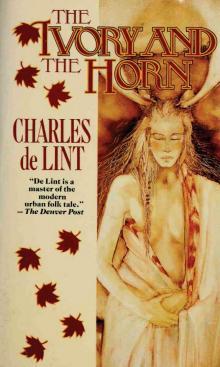 The Ivory and the Horn
The Ivory and the Horn Yarrow
Yarrow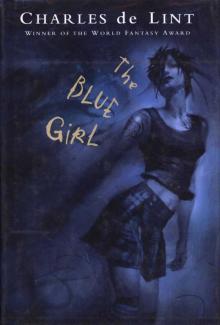 The Blue Girl
The Blue Girl Spirits in the Wires
Spirits in the Wires The Painted Boy
The Painted Boy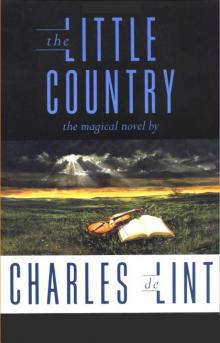 The Little Country
The Little Country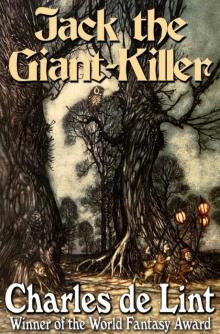 Jack of Kinrowan: Jack the Giant-Killer / Drink Down the Moon
Jack of Kinrowan: Jack the Giant-Killer / Drink Down the Moon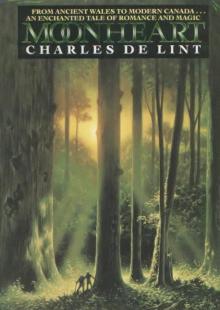 Moonheart
Moonheart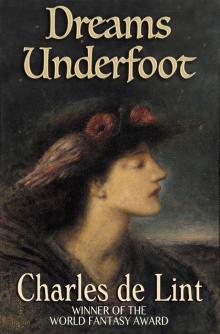 Dreams Underfoot
Dreams Underfoot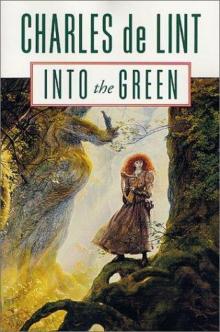 Into the Green
Into the Green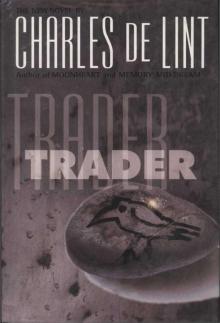 Trader
Trader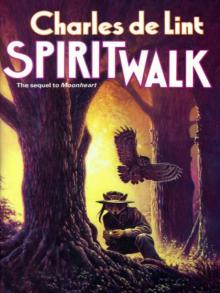 Spiritwalk
Spiritwalk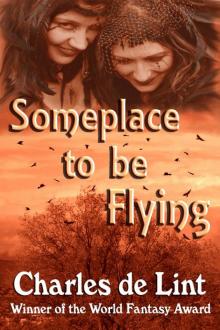 Someplace to Be Flying
Someplace to Be Flying Jack in the Green
Jack in the Green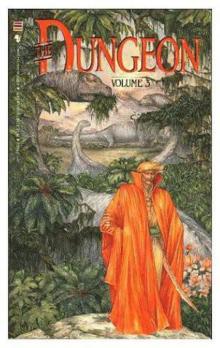 The Valley of Thunder
The Valley of Thunder Out of This World
Out of This World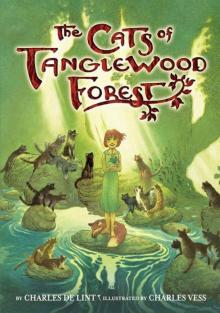 The Cats of Tanglewood Forest
The Cats of Tanglewood Forest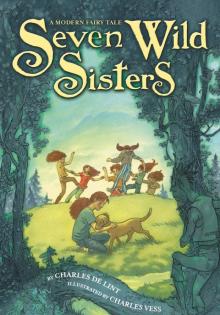 Seven Wild Sisters
Seven Wild Sisters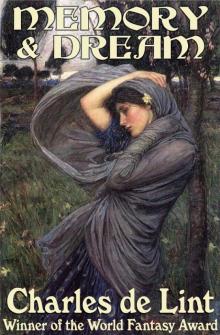 Memory and Dream
Memory and Dream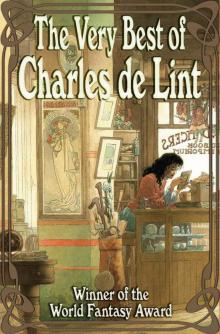 The Very Best of Charles De Lint
The Very Best of Charles De Lint Under My Skin
Under My Skin Forests of the Heart
Forests of the Heart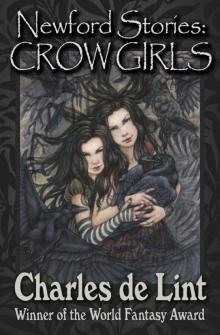 The Newford Stories
The Newford Stories Moonlight and Vines
Moonlight and Vines Angel of Darkness
Angel of Darkness The Onion Girl
The Onion Girl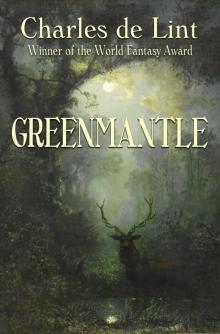 Greenmantle
Greenmantle Waifs And Strays
Waifs And Strays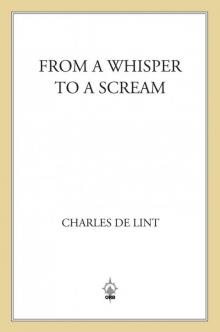 From a Whisper to a Scream
From a Whisper to a Scream Over My Head
Over My Head The Ivory and the Horn n-6
The Ivory and the Horn n-6 Our Lady of the Harbour
Our Lady of the Harbour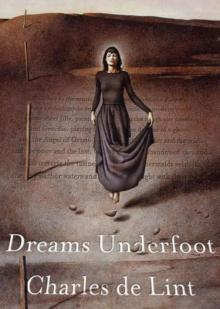 Dreams Underfoot n-1
Dreams Underfoot n-1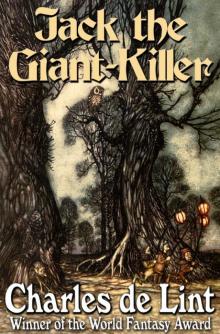 Jack the Giant-Killer (Jack of Kinrowan Book 1)
Jack the Giant-Killer (Jack of Kinrowan Book 1)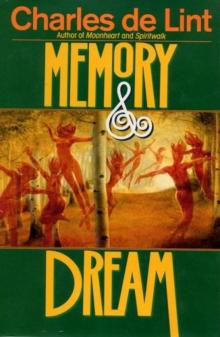 Memory and Dream n-5
Memory and Dream n-5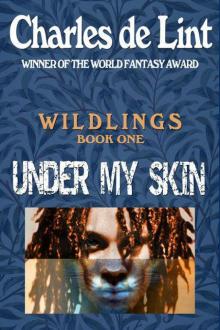 Under My Skin (Wildlings)
Under My Skin (Wildlings)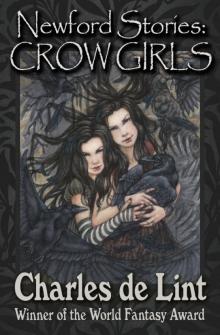 Newford Stories
Newford Stories The Wind in His Heart
The Wind in His Heart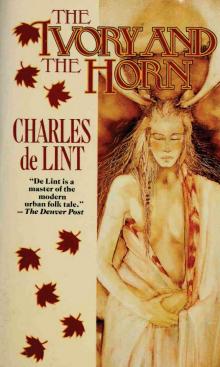 Ivory and the Horn
Ivory and the Horn